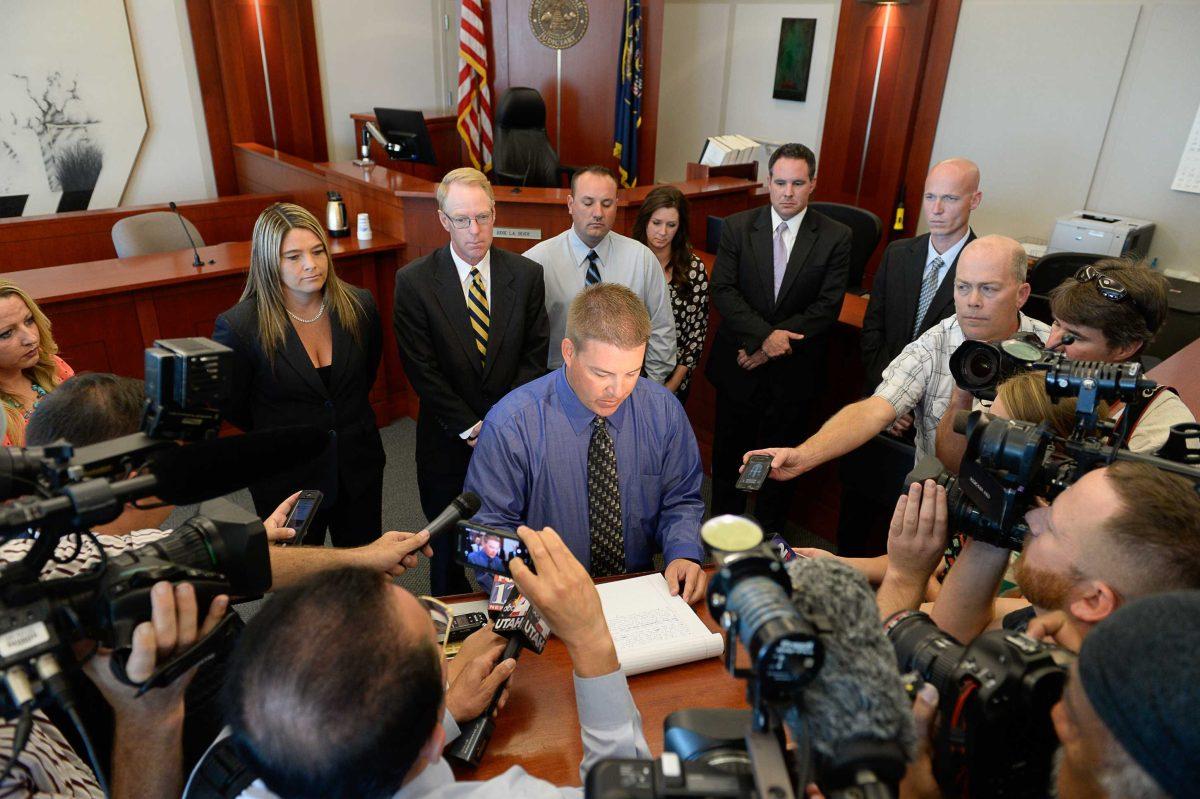While it’s true that the police receive more criticism in the media than most professions, there is a very good reason for that — the power they hold means we must hold them to a higher standard.
Police have a privileged place in society by virtue of volunteering to protect the safety of others. This position gives them greater power, which means they also must be subject to greater scrutiny than other professions.
Basically, we are forced to trust police. They are supposed to be the gatekeepers of civilization – if they weren’t protecting the law and the public, the whole system would collapse into anarchy, right? So when a police officer does something to hurt one of those he or she should be protecting, or acts in an interest outside of the public good, it’s a big deal.
The most egregious crime someone in a position of public power can commit is to violate the trust that has been placed in them. It’s why we prosecute people like Ray Nagin. When he used the power his constituents gave him to make himself some cash, he violated their trust and the essential principles of democracy.
The best tool for preventing abuse of power, in police or any other public servant, is public prosecution and shaming of those who have abused their power. The press needs to keep the public informed about police transgressions so they can hold the police accountable.
This trust puts police in a position that, if they choose to abuse it, can hurt the general public harder and more directly than anyone else.
A politician may misuse your tax dollars and sure, that’s a tragedy. But a police officer can break into your house and shoot your dog under the cover of a drug bust, and usually will face no repercussions.
This brings up the other reason media have painted police in such a bad light recently – when police wrongfully shoot, beat, or arrest someone, the overwhelming likelihood is that the victim will be black. In fact, a recent ProPublica analysis of police shootings shows that young black men are about 21 times more likely to be shot by police than their white peers.
That blacks are so much more dramatically affected by police violence is a symptom of a complex problem of institution racism, not proof that all cops are a bunch of evil, racist murderers. Police are only the arm (which happens to be covered in Kevlar and wielding some kind of automatic grenade launcher) of the system which oppresses minorities in America.
But the only way to back up a statement like that, rather than condemning individuals like Darren Wilson, is by examining long-term press coverage of police killings. If it weren’t for the press, it’d be impossible to put the individual instances of police brutality in any kind of meaningful context.
Still, some maintain the idea media coverage of police is biased because the news media doesn’t often tell stories of police officers serving justice and helping their communities. Those people may also note with confusion that the news media doesn’t report on the ice cream man’s distribution of snow cones to the neighborhood kids. That’s because people doing their jobs isn’t news.
It’s a police officer’s job to help the community, and those who do it well are compensated both monetarily and with the respect and admiration of their communities.
When the police are particularly successful at fighting and preventing crime, they can expect a pat on the back from the media. Until then, it is the media’s responsibility to hold them accountable for the power they wield.
Gordon Brillon is a 21-year-old mass communication senior from Lincoln, Rhode Island. You can reach him on Twitter @tdr_gbrillon.
Head-to-Head: Police’s position of public trust means they must face greater scrutiny
October 14, 2014
Former West Valley City police officer Shaun Cowley reads a statement to the media after Judge L.A. Dever dismissed a manslaughter charge against Crowley, Thursday, Oct. 9, 2014 in Salt Lake City. Cowley was charged with second-degree felony manslaughter in connection with the Nov. 2, 2012 fatal shooting of 21-year-old Danielle Willard. (AP Photo/The Salt Lake Tribune, Francisco Kjolseth, Pool)
More to Discover








